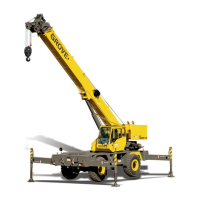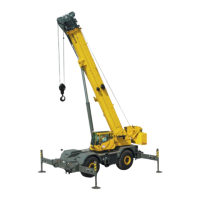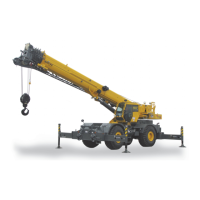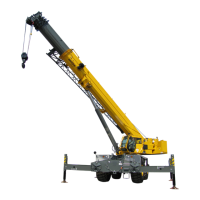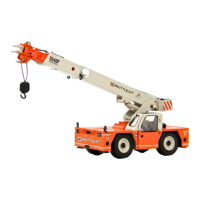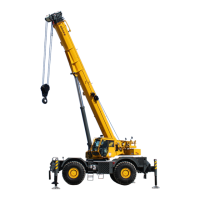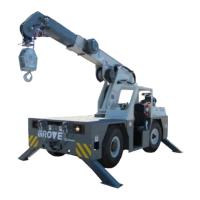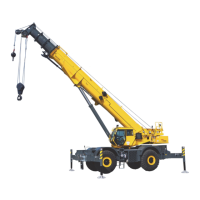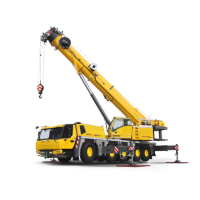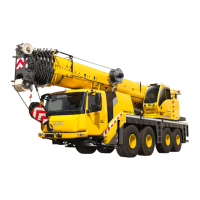Published 4-20-2015, Control # 502-01 8-7
RT540E SERVICE MANUAL UNDERCARRIAGE
Wheels and Tires
Description
The standard tire size for this unit is 20.5 x 25 -24 ply. A size
16.00 x 25 -28 ply tire is also available.
Each wheel assembly (tire and rim) is mounted on the
planetary hub with 12 grade 8 lug nuts.
NOTE: The tire diameters, widths, and weights may vary
slightly depending on the tire manufacturer.
Off-highway tires are designed to operate with a certain
sidewall deflection or bulge. Correct air pressure ensures
prior deflection which, in turn, ensures proper traction,
flotation, support of load, and prevents excessive flexing of
the tire. Over inflation increases rim stresses, which results
in lowered rim life.
Refer to and adhere to the inflation pressures in the Load
Chart Book in the crane cab.
Maintenance
Mounting Wheel Assemblies
NOTE: Do not lubricate the wheel studs or lug nuts.
NOTE: Prior to wheel installation, remove any dirt or
grease from wheel mounting surface.
1. Position the wheel assembly on the mounting studs
being careful not to damage threads. Install the lug nuts
and tighten them to 68 Nm (50 lb-ft) in the sequence
shown in (Figure 8-4)
2. Ensure the wheel assembly is positioned properly on the
hub.
3. Torque the lug nuts 461 to 488 Nm (340 to 360 lb-ft) in
the sequence shown in (Figure 8-4).
4. Retorque lug nuts after approximately one hour of travel.
Typical Wear Patterns
Incorrect Tire Pressure
Too high air pressure [(Figure 8-5), View 1] gives rapid wear
in the middle of the tire. Too low air pressure [(Figure 8-5),
View 2] gives rapid shoulder wear.
WARNING
Possible equipment damage and/or
personal injury!
Driving the crane with a tire under inflated at 80% or less
of its recommended pressure can cause the wheel and/or
tire to fail. Per OSHA Standard 1910.177(f)(2), when a tire
has been driven under inflated at 80% or less of its
recommended pressure, it must first be completely
deflated, removed from the axle, disassembled, and
inspected before re-inflation.
CAUTION
Do not mix tires and rims of different manufacturers.
WARNING
Do not attempt to demount or mount tires without proper
training. The high pressures involved can cause tire and
rim parts and tools to fly with explosive force, if proper
procedures are not used, causing severe injury or death
to personnel and damage to the crane and surrounding
area.
FIGURE 8-4
1
2
3
5
9
7
11
6
10
4
8
12
Reference Only
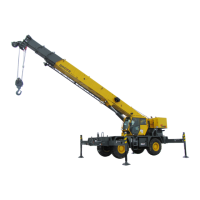
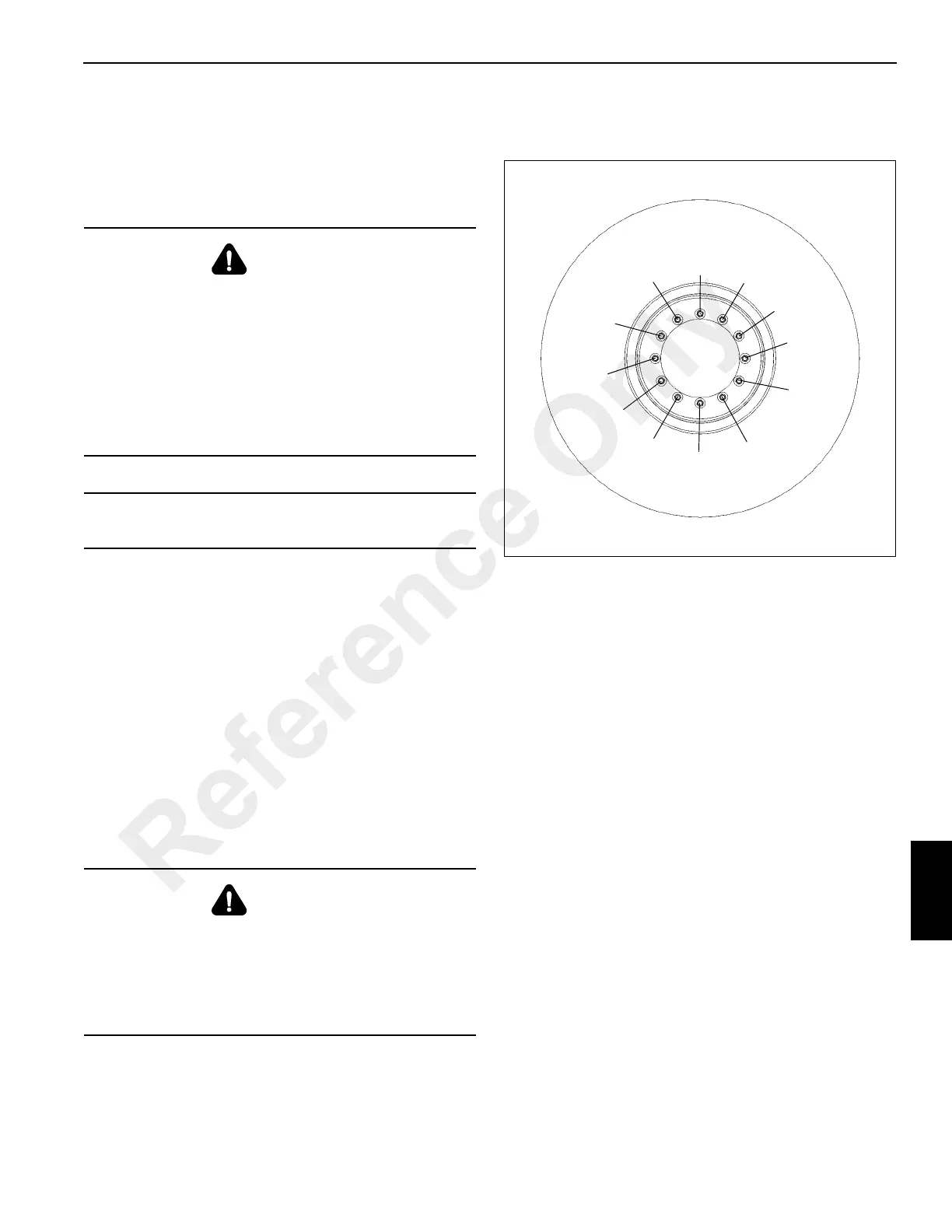